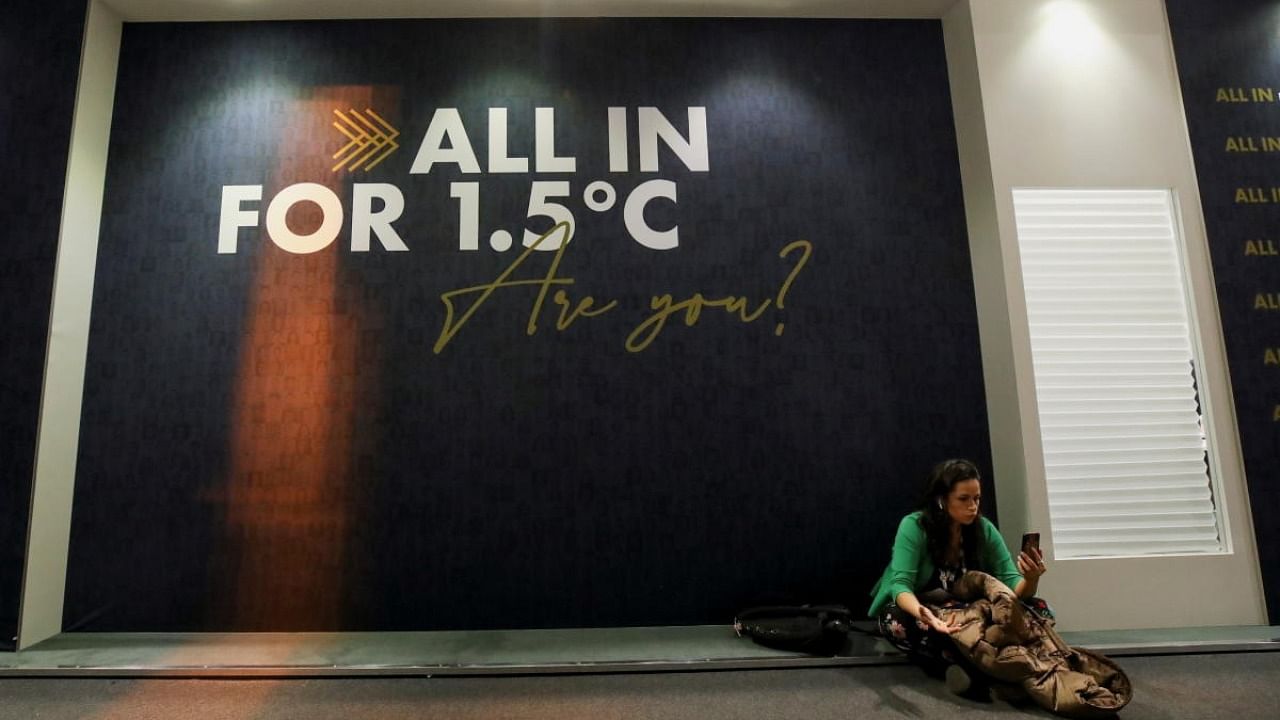
With less than four days left to strike a deal on rules to govern global carbon markets, negotiators at COP26 are stuck at the same impasses as the previous two climate summits.
The aim driving such a market is to unleash trillions of dollars to protect forests, build renewable energy plants and fund other projects to halt climate change.
It could also bring firmer rules to unregulated voluntary markets for offsetting emissions, although campaigners including Greenpeace and Amnesty International have opposed the use of carbon offsets under any circumstances.
For those at the United Nations talks, there is a sense of deja vu amid wrangling over rules for the system, which could allow countries and companies to pay others to cut emissions, sometimes in lieu of bringing down their own.
"There's a higher chance of getting a deal this time, but it could be very weak," Gilles Dufrasne, a policy officer with Carbon Market Watch said.
"Having no deal might hence be an acceptable outcome."
It was the same at the 2019 UN climate summit in Madrid, where the Spanish government said "no deal" was better than a bad one. And so too in 2018 at the talks in Katowice, Poland.
This week, government ministers arrived in Glasgow hoping to finally clinch a deal on carbon market rules, which fall under Article 6 of the 2015 Paris Agreement.
The issue "is one of the main priorities for the EU," Tina Kobilsek, a top EU negotiator, told Reuters.
But the old sticking points remain, including how to divert market proceeds to climate adaptation, use old units from a previous UN scheme and count credits traded between countries.
Wiggle room
The mood in Glasgow is different, with negotiators poring over commas and brackets in draft texts in a way that suggests they are readying a deal, some diplomats and observers said.
"They are under pressure to deliver," one diplomat said, with countries testing one another's room for manoeuvre.
"There is a willingness among many countries to work together," the diplomat added.
One area with wiggle room is whether offset credits from the old Kyoto Protocol are carried over into the new market, with two options being considered that would allow this for credits generated after 2013 or 2016.
The European Union is analysing how many credits that would total, and has not yet decided if those cut-off dates are acceptable, Tina Kobilsek said.
Brazil, Arab countries and a group of developing nations that includes China had wanted all old credits to be carried forward. Brazil's top negotiator said last week that it could agree to a partial carryover.
Sharing proceeds
A second diplomat said last week's negotiations had left the trickiest topics to government ministers this week.
"We did not cover in full the worst topics," the second diplomat said, including the demand by many countries to prevent "double counting". That would occur if both the buyer and the seller of an emission reduction credit counted it towards their climate targets.
The EU has drawn a red line on the issue. "There's obviously no space for double counting," Kobilsek said.
On the other side are Brazil and Arab countries, which want double counting allowed.
Also unsettled is whether bilateral carbon trading should be taxed, with the proceeds going to a fund helping developing countries adapt to climate change. That is opposed by the EU, United States and other rich nations.
'Delayism'
Letting companies and countries buy credits toward "net zero" targets instead of reducing their own emissions to absolute zero represents a "form of delayism", Seema Joshi, director of campaigns at non-profit Global Witness, said.
Critics are particularly worried by the private sector Taskforce on Scaling Voluntary Carbon Markets, promoted by former Bank of England Governor Mark Carney, which Greenpeace chief Jennifer Morgan called "pure greenwash".
A spokesperson said the taskforce believed markets for high-quality offsets would help cut CO2 and push cash into developing green technologies.
"Carbon credits are already being traded on voluntary carbon markets and too often without adequate quality and transparency," the spokesperson added.
Watch latest videos by DH here: